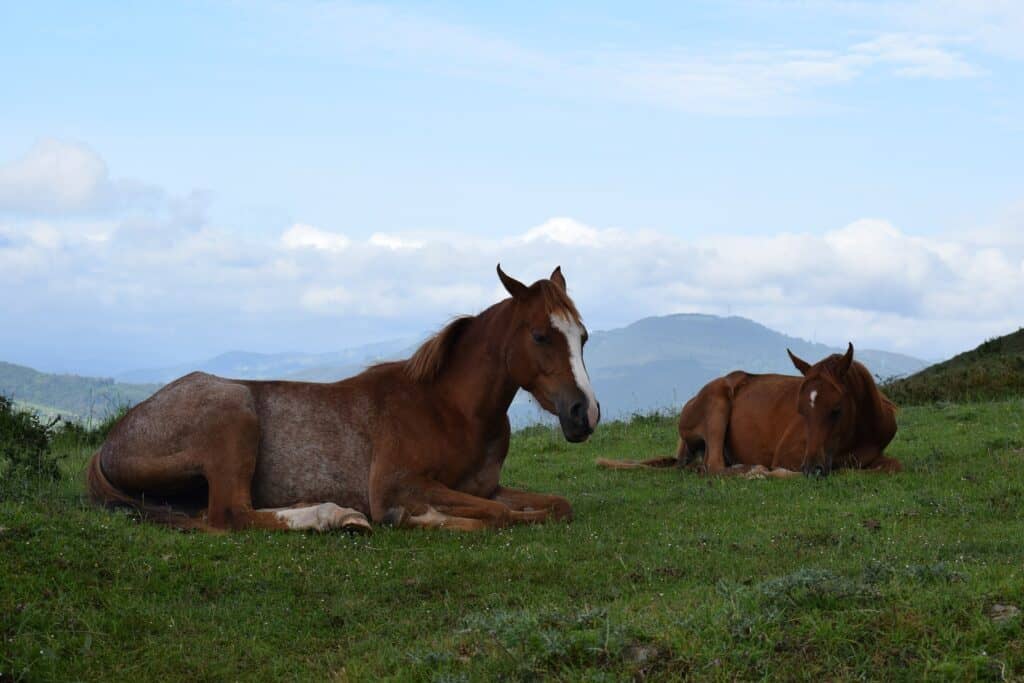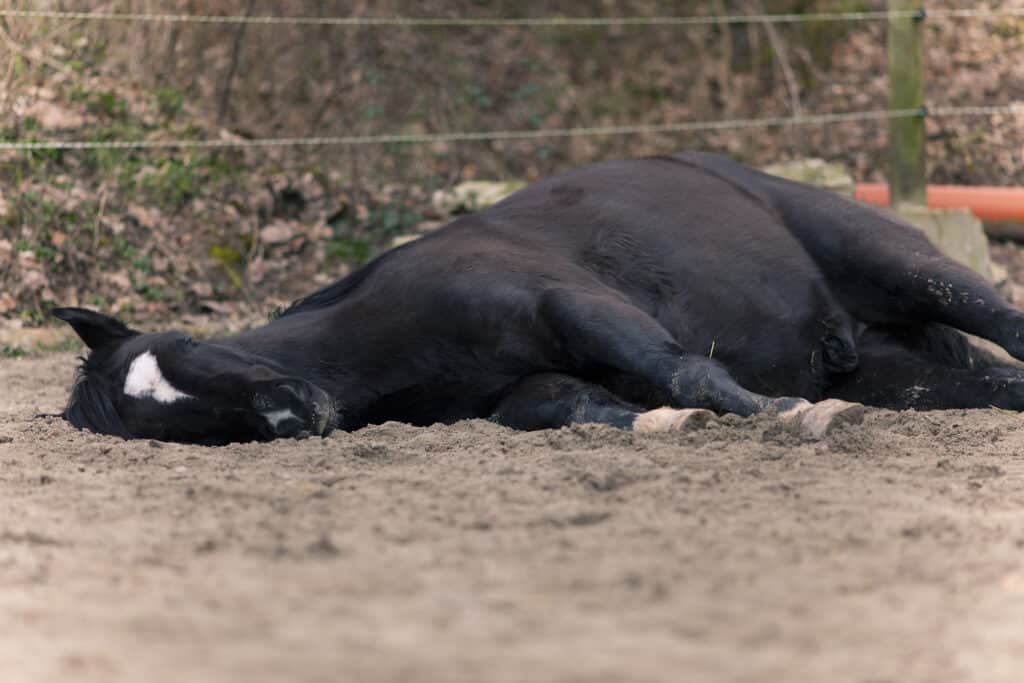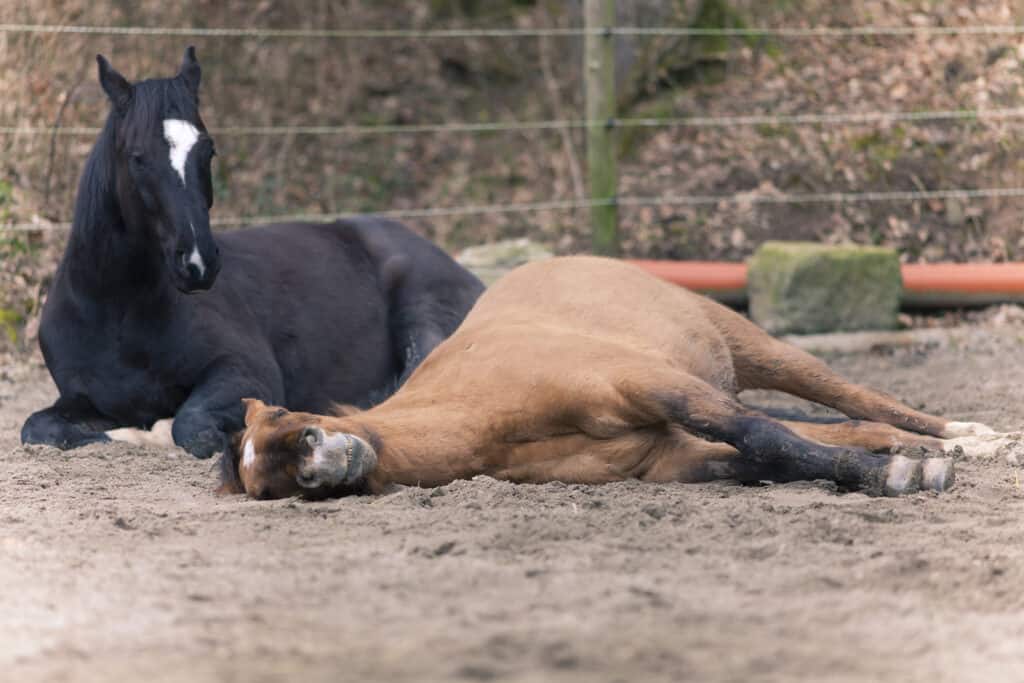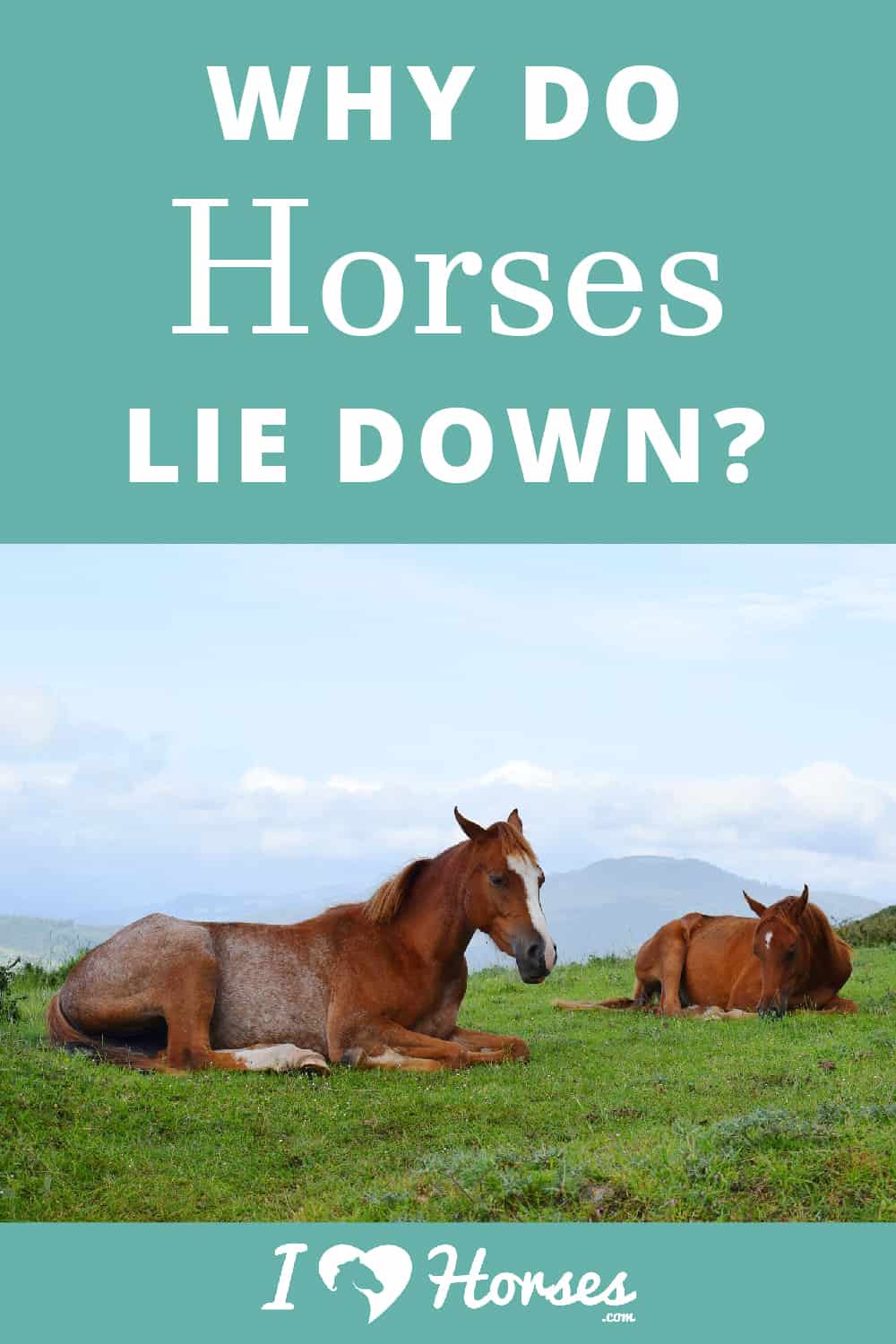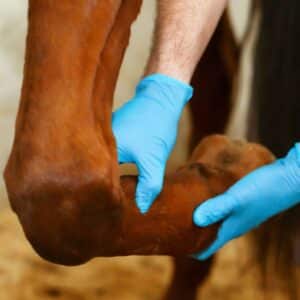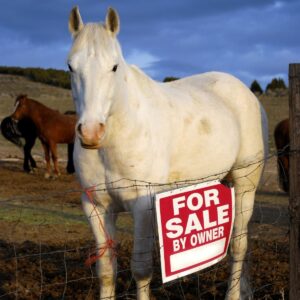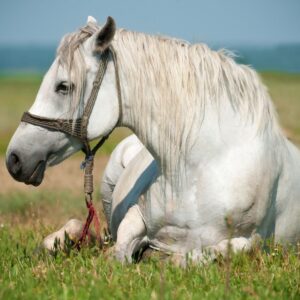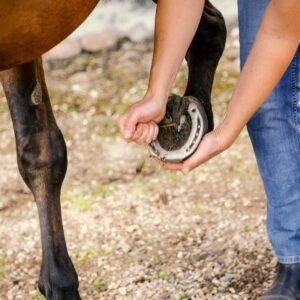When you are driving and you pass a horse lying down in a field, what is your first reaction? For most of us horse lovers, we tend to think, “IS HE BREATHING?!” We may even pull over and honk and wait for their head to pop up so we can see them breathe for ourselves. Other times, if we see our horse catching a couple of zzz's in the pasture, we may walk over and snuggle up to them. So, what do we really need to know when we see a horse lie down? Keep reading to find out!
Sweet dreams sleeping beauty
Horses belong to the taxonomic family of Equidae, along with donkeys and zebras. All of which are prey animals and need to be able to run away quickly from danger. This is the reason why horses spend the majority of their time on their feet, including to sleep. Their bodies are anatomically built to sleep standing up with the help of what is called a stay apparatus that basically locks their joints in place so they don’t tip over dozing off.
Katherine Houpt, VMD, PhD, tells The Horse that,
“Because they are so heavy, horses can’t lie down for long periods of time because it will interfere with blood flow. And that’s one reason why horses under anesthesia can sometimes have problems. Also, horses don’t lie down as much because they don’t need as much REM (rapid eye movement) sleep as other species. Horses do need REM sleep, but not a lot.”
However, in order to achieve REM sleep, horses actually need to lie down. Horses do not need as much REM sleep as humans do, so they will only lay down for short periods which goes in hand with not being able to lay on their sides for long because it decreases blood flow. Foals will lay down to sleep more than adults, but foals weigh significantly less so it's not as much of a problem.
Injuries and Colic
Horses that have a leg injury may want to lie down because it hurts to stand up. A colicky horse will also want to lay down and roll to try and find comfort from their belly ache. Both of these situations can become dangerous to the horse quickly. Again, because of their size, if a horse lies down for too long, blood flow can be cut off from parts of their body. If this situation is observed, try to get the horse on their feet and call a veterinarian immediately and try to walk the horse to a safe location. If you believe the horse has developed colic, try to keep them walking to increase intestinal mobility.
Many horses that become tangled in wire will lay down. If you ever find yourself in this situation, do your best to free the horse from the wire, but have a halter on the horse if possible. Usually once freed, horses will take off and it becomes a dangerous situation for all involved.
If you see your horse lying down, observe them for a few minutes. More than likely they are taking a nap. For safety reasons, see where the location is where they are lying down. Be sure they can get back up and are not stuck on the side of a barn wall, fence, or lying uphill. If you are curious about your horse’s sleep patterns, put a camera out, you may even catch them dreaming!
Visit this next article to learn about the different types of colic in horses and what to do about them.
Horse Courses by Elaine Heney
- Listening to the Horse - The Documentary by Elaine Heney & Grey Pony Films
- Shoulder In & Out Training for better balance, bend & topline development with your horse
- Over 110+ Polework Exercises & Challenges to Download
- Dancing at Liberty & Creating Connection with Your Horse (11 lessons) - Grey Pony Films

